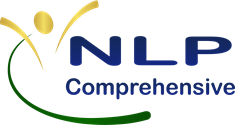Avoiding collapsing businesses and getting a better job? Making better investments in love and life?
The Power of Four – How Four little questions can change your world – or the world of someone around you.
“According to whom?”
“What would happen if you did/didn’t?
How, exactly,…?
Who, specifically…?
One of the essential language sections in any good NLP training is called the MetaModel. It’s the first set of language patterns taught because understanding and being able to use it fluently is key to mastering more advanced patterns. It’s also one of the easiest to pick up from a book or audio.
Also known as “language of specificity,” when used as a technique, the meta-model is a set of questions intended to bring a conversation, belief, or situation to a sensory-specific (pure information) level.
Getting to sensory-specific data is essential because you cut through and expose preconceptions, misunderstandings, and limiting beliefs. Learning the basic MetaModel questions makes this really simple and effective.
How powerful is it?
It might have saved us an economic collapse if someone had used it with the headman in derivatives trading at AIG. He is now famous for saying “I can’t imagine us ever losing one dollar on any of these contracts.”
If, instead of taking that as gospel, what if one of the executives at AIG had known to ask “If you did imagine it, what would the consequences be? If you can’t, who could imagine it?”
Goldman Sachs spent time and money creating a culture where such statements and beliefs are challenged. Lehman Brothers didn’t.
In fact, at Lehman, such challenges were rejected by top management. The outcome speaks for itself.
WARNING: You want to be aware of the rapport and permission you have when meta-modeling a situation. If not, your relationship with the person(s) could suffer – and you likely won’t get the answers you need. The guy at Lehman who challenged top management over their investment direction was fired.
Here’s a more personal example of the use of the Meta Model. In last summer’s program, one of the students Charles Faulkner was working with presented the issue that “there wasn’t any work.” (How common is that meme today? )
Here’s how the conversation went:
Student: “there just isn’t any work.”
CF: “no work for anyone?:
S: “None of my friends can find work.”
CF: “none of them?”
S: “yeah, our agent says there isn’t any work out there.”
CF: “So your agent is convinced there isn’t any work.”
S: “yeah.”
CF: “Ever think it might be time for a new agent?”
S: (long pause) You know, you’ve got a point. How successful can he be finding work for us if he’s already convinced there is none to be found?”
The student went home, found a new agent, and at last reported his career is back on track.
Oh, the guy at Lehman who was fired? He went on to short Lehman’s stock and made a fortune in just six months. So even in apparent defeat, by putting to use what he learned from challenging common wisdom, he triumphed.
How can you start using these simple techniques to cut through the misdirection and confusion around you? Here is an introduction and some further examples drawn from our Practitioner Training Trainer’s Manual and here are a few daily practice exercises from the Unconscious Competence Calendar.
Cheers,
Tom Dotz
